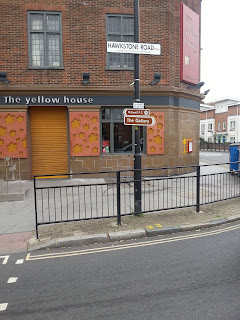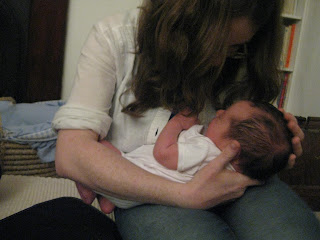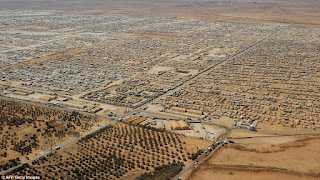Violence & Immigration
(My response to a blog post seeking to establish and/or disprove a correlation between
these very diffuse concepts...)
Violence is a multi-faceted concept. Its many aspects cannot
be quantified all at once. The debate about immigration and violence invariably
centres on a particular sort of immigrant – generally those arriving in Europe
or the US from the Middle East, specifically those fleeing war.
The “violence” that gets the most attention is generally
rape, or other forms of sexual violence, almost exclusively that which is
directed at the local population. Forms of violence directed at the immigrant
community itself - or other immigrant communities - such as self-harm, domestic
abuse, or abuse of other immigrants – is hardly even discussed.
Obviously, there are
already many ways in which the debate has already been chiselled down to
context and social setting. Here we are not taking purely of immigration per se,
we are taking about people who are consciously leaving the society and country
in which they have hitherto lived because that society has become intolerable,
either because of war, persecution or the material and economic effects of
these two things. Already, sweeping statements about the “nature of Islam” or “Middle
Eastern society” have to be subordinated to the context we are talking about.
And European/ US society is not without context itself. The role of the state
in Europe is shrivelling – as are many types of communal consciousness and
identity. Knife crime and communal violence is on the rise in Europe too. And
while not to be ignored, immigration is not the main factor in that either.
The current immigration debate is not framed in terms of the
legal or moral duties of states and societies to offer safe haven to fellow
humans. The dominant discourse is one of numbers – and of
integration. How many can be “let in?”, how should they be let in? What sorts
of immigrants should be let in? How will they integrate? Integration is the
dominant theme, specifically in the context of the rising media coverage about violent,
home-grown Islamism in (often second or third generation) immigrant communities
in Europe.
There is a widespread expectation in Europe today that to be
received, the immigrant should consciously chose to integrate. And that this choice is possible. This doesn't take into account the bilateral nature of "integration" - that to accept, you must also be accepted - and visa-versa. It also assumes that people know what they are supposed to integrate with. In this sense, it simplifies the receiving society- and as we all know, all societies are complex. Is the process of "integration" the same for an urban Syrian surgeon who is now housed in sleepy artic village the same as that of a peasant from the provinces propelled into Oslo? Obviously not. People are all different. All too often, discourse on integration neglects that the societies receiving immigrants are also diverse- not just in terms of where people who live there are from - but in terms of class, political and social views, lifestyle and belief systems. The integration debate also often echoes the "us and them" narrative. The sense that when someone moves somewhere new, they will either accept everything about the new place or reject it all. It neglects that the process of absorption and integration and discovery might be a long, fascinating, painful, difficult, thrilling, isolating and/or ambivalent process. It neglects that Europe is going forward too - and not in some linear, predestined direction. That the future literally develops and unfolds.
There is not much focus on how the immigrant integrates - and whether or not this integration is even conscious, let alone a choice. In this sense, the immigration debate is not about the immigrant - or even about the whole society receiving the immigrant- its about a few groups within the receiving society, mostly those who, for whatever reason, feel threatened by immigration. By framing the debate in terms of rape and other types of crime, groups who are opposed to immigration create fear. And as we all know, fear mobilises people, often violently. When a criminal is referred to first and foremost as a "migrant" rather than"mentally ill" or a "unemployed", or by any other category that could be used to define him or her, some people - mainly those who are already opposed to immigration anyway - will conclude that reducing immigration might reduce crime.
In other senses, the debate is all about nationalism. The nationalism of the receiving country. This is interesting, given that the forces that led to the rise of nationalism have virtually ground to a halt. While people in Europe (and elsewhere) increasingly define their identities in global, or local, rather than national terms, the debate about letting “people in” is essentially one of national sole searching. In Norway, immigrants are given compulsory lessons about “Norwegian” attitudes to gender. These attitudes hardly have anything specifically Norwegian about them – and seem to be given by vindictive teachers who have never been to the Middle East and seem to direct all their qualms against patriarchy in general at immigrants fleeing war. They give us a generic hyperbole about how Muslims or Arabs don’t “respect” women citing examples from Qatar or Saudi Arabia – countries which produce rich-kid pleasure seekers, fee paying students and big spending tourists – rather than immigrants. There is no consideration to the ways in which patriarchy is promoted by political circumstances and exasperated by conflict.
There is not much focus on how the immigrant integrates - and whether or not this integration is even conscious, let alone a choice. In this sense, the immigration debate is not about the immigrant - or even about the whole society receiving the immigrant- its about a few groups within the receiving society, mostly those who, for whatever reason, feel threatened by immigration. By framing the debate in terms of rape and other types of crime, groups who are opposed to immigration create fear. And as we all know, fear mobilises people, often violently. When a criminal is referred to first and foremost as a "migrant" rather than"mentally ill" or a "unemployed", or by any other category that could be used to define him or her, some people - mainly those who are already opposed to immigration anyway - will conclude that reducing immigration might reduce crime.
In other senses, the debate is all about nationalism. The nationalism of the receiving country. This is interesting, given that the forces that led to the rise of nationalism have virtually ground to a halt. While people in Europe (and elsewhere) increasingly define their identities in global, or local, rather than national terms, the debate about letting “people in” is essentially one of national sole searching. In Norway, immigrants are given compulsory lessons about “Norwegian” attitudes to gender. These attitudes hardly have anything specifically Norwegian about them – and seem to be given by vindictive teachers who have never been to the Middle East and seem to direct all their qualms against patriarchy in general at immigrants fleeing war. They give us a generic hyperbole about how Muslims or Arabs don’t “respect” women citing examples from Qatar or Saudi Arabia – countries which produce rich-kid pleasure seekers, fee paying students and big spending tourists – rather than immigrants. There is no consideration to the ways in which patriarchy is promoted by political circumstances and exasperated by conflict.
This reaction to immigration is not unique to Europe- but it does differ from many other historical examples. In 19th
century Damascus, which was part of the multilingual Ottoman Empire, non-Arabic
immigrants coming to live in Damascus lived in specific areas and spoke their
own language. They were recruited by the Ottoman military to police the local
population – the assumption being that they would not feel such strong ties to
it, therefore were more impartial. In a sense, then, these immigrants were
viewed as having an extremely important role as impartial bystanders. And on
this basis, they were recruited specifically to carry out state-sponsored
violence.
Whether or not the experience of immigration promotes
violence is another important question. By that, I don’t mean the journey
itself, though that is also surely part of the experience, I mainly mean the
way people are received in the society which they go to live in. Besides
the conscious forsaking of any political violence
against the host society- integration is viewed in passive terms.
There is an assumption that the immigrant is a passive being whose primary role in society is to absorb. In fact, immigrants are human beings going to live in new settings. They haven't always chosen the place they end up. The European experience of going to live somewhere new is far more like tourism than the asylum seeker's experience. In victimising immigrants, some narratives remove all agency from their actions. When humans are talked about purely as products of their environments, they risk being talked about like objects, or teenagers leaving school, as if they were people without histories, memories or their own ethical frameworks.
Immigrants in Europe are expected to be passive and dependent. However, there are one or two non-passive things expected of them. One of this is the expectation that they teach the host society tolerance. Thus, instead of actively trying to challenge or change the societies they come to when they arrive, human beings fleeing complex political situations, many of which have become very violent, are expected to impart a sense of tolerance to local populations. This fits with the fact that many people already in the society where the immigrants are going to live may be less worldly and less “educated”- both formally and informally - than the immigrants. Tolerance is extremely important in all societies and environments - especially but not only those that are in diverse and quickly changing. However, it neglects the many other faces that people, immigrants included, have. Very few people, regardless of where they are from, can just absorb. Few can spend their lives teaching tolerance. Immigrants are human beings. They will want to create, participate, analyse, assess, dispute, love and hate. And of course, like other people in fluid situations, they aren't immune to violence or anger. Moving somewhere new is a dislocating experience. Being surrounded by an unfamiliar economic and political system is hard. All of these changes are, in my opinion, far starker, and more likely to produce violence, than the fact that girls might dress differently in Norway than they do in Syria. But inevitably, the media and integration experts like to highlight differences between societies in terms of how women dress. Simplistic? Yes, Dangerous? Often. Differentiating the "backward" from the "liberal" or the "foreigner" from the "native" based on their clothing creates an environment in which spontaneous right wing nationalist attacks are very easy.
There is an assumption that the immigrant is a passive being whose primary role in society is to absorb. In fact, immigrants are human beings going to live in new settings. They haven't always chosen the place they end up. The European experience of going to live somewhere new is far more like tourism than the asylum seeker's experience. In victimising immigrants, some narratives remove all agency from their actions. When humans are talked about purely as products of their environments, they risk being talked about like objects, or teenagers leaving school, as if they were people without histories, memories or their own ethical frameworks.
Immigrants in Europe are expected to be passive and dependent. However, there are one or two non-passive things expected of them. One of this is the expectation that they teach the host society tolerance. Thus, instead of actively trying to challenge or change the societies they come to when they arrive, human beings fleeing complex political situations, many of which have become very violent, are expected to impart a sense of tolerance to local populations. This fits with the fact that many people already in the society where the immigrants are going to live may be less worldly and less “educated”- both formally and informally - than the immigrants. Tolerance is extremely important in all societies and environments - especially but not only those that are in diverse and quickly changing. However, it neglects the many other faces that people, immigrants included, have. Very few people, regardless of where they are from, can just absorb. Few can spend their lives teaching tolerance. Immigrants are human beings. They will want to create, participate, analyse, assess, dispute, love and hate. And of course, like other people in fluid situations, they aren't immune to violence or anger. Moving somewhere new is a dislocating experience. Being surrounded by an unfamiliar economic and political system is hard. All of these changes are, in my opinion, far starker, and more likely to produce violence, than the fact that girls might dress differently in Norway than they do in Syria. But inevitably, the media and integration experts like to highlight differences between societies in terms of how women dress. Simplistic? Yes, Dangerous? Often. Differentiating the "backward" from the "liberal" or the "foreigner" from the "native" based on their clothing creates an environment in which spontaneous right wing nationalist attacks are very easy.
Arguments about whether or not immigrants are more “violent”
than local populations have to take all of this into account. Is there more
violence outside Europe? What forms does this violence take? What causes it? We
need to look into political and economic factors that promote violence. That
said, overarching statements about what a “culture” or “religion” is like, mainly
made by people who have no first-hand experience of that culture or religion, are
not useful. They disempower rather than empower - and disempowerment is one of the main feeders of patriarchy. They also become a form of cultural oppression themselves. This is completely contrary
to the whole ethos of the immigrant having to passively integrate, and it ultimately
promotes violence.



Comments
Post a Comment